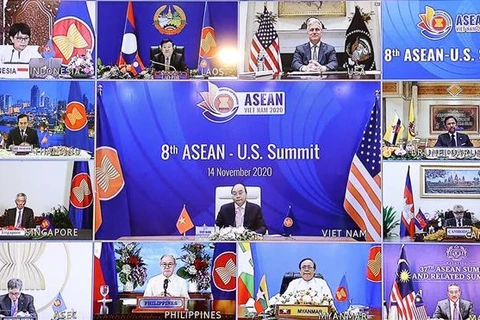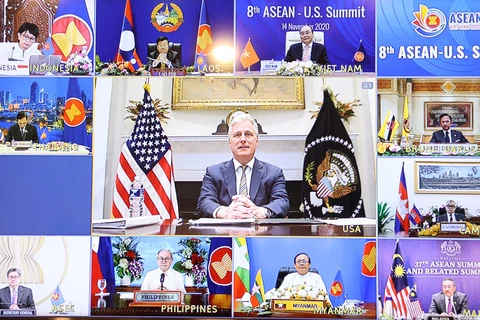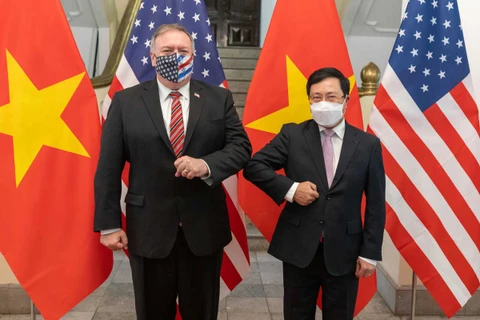Hanoi (VNA) - The characteristics of relations between the US and ASEAN and key regional partners, as well as major orientations in their dialogue, were among the topics of an online seminar held by the Higher School of Economics (HSE) in Russia on January 26.
The seminar brought together more than 100 leading Russian experts and scholars in international politics and security.
Delegates also touched on the new US President Joe Biden administration’s forecasted policy towards Asia, along with his stance on multilateral institutions and formats in the region.
They shared the view that the Asia-Pacific region and Southeast Asia in particular are expected to continue facing various challenges, including the COVID-19 pandemic, economic slowdown, and competition between China and the US.
Recommendations were made on easing the impact of the challenges and spurring regional integration.
Dr Alexander Korolev, an expert from HSE, said external and internal impacts would prompt ASEAN to make greater efforts to maintain its appeal and affirm its centrality in ensuring security processes in the region.
ASEAN should enhance solidarity and maintain consensus on major security matters, such as the East Sea issue and the implementation of the ASEAN outlook on Indo-Pacific.
The ten-member grouping would also carry forward its centrality by attracting China and the US in institutions such as the ASEAN Regional Forum (ARF), the East Asia Summit (EAS), and the ASEAN Defence Ministers’ Meeting Plus (ADMM ).
Delegates also suggested Russia cooperate with ASEAN in cyber security, the fight against pirates and terrorists, and settling the consequences of natural disasters./.
The seminar brought together more than 100 leading Russian experts and scholars in international politics and security.
Delegates also touched on the new US President Joe Biden administration’s forecasted policy towards Asia, along with his stance on multilateral institutions and formats in the region.
They shared the view that the Asia-Pacific region and Southeast Asia in particular are expected to continue facing various challenges, including the COVID-19 pandemic, economic slowdown, and competition between China and the US.
Recommendations were made on easing the impact of the challenges and spurring regional integration.
Dr Alexander Korolev, an expert from HSE, said external and internal impacts would prompt ASEAN to make greater efforts to maintain its appeal and affirm its centrality in ensuring security processes in the region.
ASEAN should enhance solidarity and maintain consensus on major security matters, such as the East Sea issue and the implementation of the ASEAN outlook on Indo-Pacific.
The ten-member grouping would also carry forward its centrality by attracting China and the US in institutions such as the ASEAN Regional Forum (ARF), the East Asia Summit (EAS), and the ASEAN Defence Ministers’ Meeting Plus (ADMM ).
Delegates also suggested Russia cooperate with ASEAN in cyber security, the fight against pirates and terrorists, and settling the consequences of natural disasters./.
VNA























